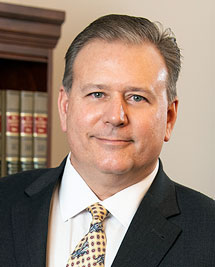Estate Planning Legal Glossary
The law is full of specialized vocabulary, unwieldy terms that sometimes seem designed solely to confuse.
The Lexington, Kentucky-based estate planning firm of Bunch & Brock recognizes that many people are intimidated by the unfamiliar words that dominate estate law and offers these easy-to-reference definitions as a service to potential clients. We understand that every client’s personal, family and economic goals are unique, and you can rely on us for dedicated representation. We have guided many people through the estate planning process efficiently and effectively. Put our experience to work for you. Contact us today by calling 859-254-5522 or filling out this online form.
Beneficiary:
A person or organization who receives assets under a legal document such as a will, insurance policy, or trust.
Decedent:
The person who died.
Estate Plan:
The legal preparation for distributing a person’s estate through wills, insurance, gifts, and trusts to help minimize the impact of federal and state taxes. A person’s estate includes property they own, debts they owe, rights and obligations.
Executor/Executrix:
A person named in a will who is chosen to carry out the distribution of an estate. This person has many responsibilities, including filing tax returns, paying bills and representing the estate in court. Also known as a Personal Representative.
Financial Power of Attorney (POA):
Grants someone else the legal authority to act on a person’s behalf in the event he or she becomes incapacitated and is unable to make financial decisions. In that situation, the person who executes the financial POA is known as the principal, while the person who is selected is called the attorney-in-fact or the agent.
Health Care/Medical Power of Attorney (POA):
Grants someone else the legal authority to act on a person’s behalf in the event he or she becomes incapacitated and unable to make health care decisions. This document goes further than a living will and may be used in conjunction with one.
Heir:
If there is no will, an heir is a person who is entitled to inherit property under state intestacy law. If there is a will, an heir is anyone who is named to receive property.
Intestate:
To die without a will. If this happens, the state applies its rules of intestate succession to determine how the decedent’s property should be distributed.
Living Will:
A legal document that expresses a person’s wishes regarding prolonging his or her life by artificial or extraordinary measures in the event of a terminal illness or permanently unconscious condition. A living will allows a patient’s rights to be respected even after he or she is no longer able to participate actively in the decision. For any situation other than an end-stage condition or permanent vegetative state, a health care power of attorney is required.
Probate:
A state court procedure for validating a decedent’s will if there is one, applying state intestacy laws if there is not a will, paying the debts of the decedent’s estate, and distributing the decedent’s property. The process is intended as a way to transfer estates in an orderly and supervised manner.
Testator/Testatrix:
The person who makes a will.
Trust:
A legal arrangement by which a person transfers property to someone else who holds and manages the property for a third party. If the maker of the trust gives up the power to change or terminate the trust, then the trust is considered to be irrevocable. If the maker keeps that power, the trust is revocable. There are advantages and disadvantages to both types.
Trustee:
The person or institution that is appointed to execute, administer and carry out the terms of a trust for the benefit of the beneficiary. Trustees have both duties and powers.
Trustor:
The person who makes a trust. Also known as a Grantor.
Will:
A written document representing the instructions of the decedent for the distribution of his or her estate. The requirements of what makes a will valid vary from state to state, but in general, the will must be in writing (typed or printed), must be signed and dated by the testator, and must have been witnessed by two adults. There are many nuances to these requirements and special rules that apply to wills written entirely in the testator’s own handwriting (known as a holographic will). A will is nothing more than a piece of paper if not correctly drafted, which is why seeking a lawyer’s advice is critical.

Attorney Matthew Bunch
Matt handles complicated bankruptcies and debt restructuring in Chapters 11 and 13 for both individuals and companies. He has also negotiated with multiple creditors on behalf of his clients to avoid bankruptcy. Matt is the firm’s lead litigator and handles contract disputes, certain personal injury claims and general litigation. [ attorney bio ]
















